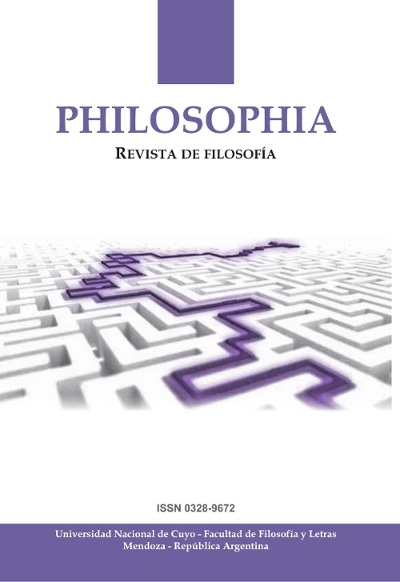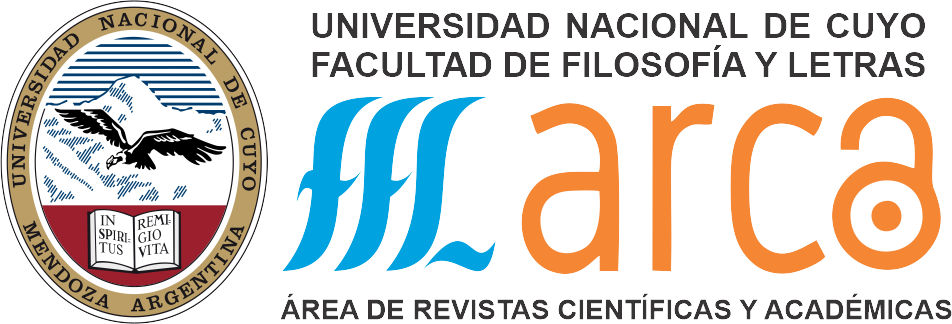Nuclear Trope Bundles
Keywords:
Particulars, Properties, Tropes, Trope Bundles, Nuclear Trope BundlesAbstract
Simons (1994, 2000) has proposed an ontology of trope bundles in which there is a ‘nucleus’ and a ‘periphery’ or ‘halo’. The nucleus is composed of tropes all of which are essentially co-instantiated with all the others. The periphery is composed with tropes that are ontologically dependent on the tropes of the nucleus, but the tropes of the nucleus are not dependent on the peripheral tropes. The nuclear theory of tropes, then, can accommodate our intuitions about essential and accidental properties of an object. Essential properties should be tropes part of the nucleus of an object. The nucleus as a whole should be taken as the individual essence of the object. It is considered here how do the traditional candidates for non-trivial essential properties fare as constituents of nuclear bundles. It appears that neither a sortal property, nor the conditions of origin seem adequate tropes for the nuclear bundle. Other proposals by Simons (1994) and Campbell (1990) seem to lead to highly revisionary nihilistic or monistic ontologies. In contrast, here a trope of being or existence is proposed as component of the nuclear bundle. The theory that results is coherent with the main lines of what has been sustained by friends of tropes, but, interestingly, also seems to cohere with the intuitions deployed by defenders of a substrate.
References
Adams, Robert M., "Primitive Thisness and Primitive Identity" The Journal of Philosophy 76 (1979), 5-26.
Aristóteles, Categorías. Sobre la interpretación (Buenos Aires: Losada, 2009. Introducción, traducción y notas de Jorge Mittelmann).
Aristóteles, Metafísica (Madrid: Gredos, 1994. Introducción, traducción y notas de Tomás Calvo).
Armstrong, David M., Universals and Scientific Realism, Volume 1, Nominalism and Realism (Cambridge: Cambridge University Press, 1978).
Armstrong, David M., Universals and Scientific Realism, Volume 2, A Theory of Universals (Cambridge: Cambridge University Press, 1978).
Brody, Baruch, Identity and Essence (Princeton: Princeton University Press, 1980).
Campbell, Keith, "The Metaphysic of Abstract Particulars" Midwest Studies in Philosophy 6 (1981), 477-488.
Campbell, Keith, Abstract Particulars (Oxford: Blackwell, 1990).
Collins, John Ned Hall y L. A. Paul (eds.), Causation and Counterfactuals (Cambridge, Mass.: The MIT Press, 2004).
Ehring, Douglas, Tropes. Properties, Objects, and Mental Causation (Oxford: Oxford University Press, 2011).
Forbes, Graeme, The Metaphysics of Modality (Oxford: Clarendon Press, 1985).
Francescotti, Robert, "How to Define Intrinsic Properties" Noûs 33 (1999), 590-609.
Hall, Ned, "Causation and the Price of Transitivity" en John Collins, Ned Hall y L. A. Paul (eds.), Causation and Counterfactuals, 181-203.
Husserl, Edmund, Investigaciones lógicas (Barcelona: Altaya, 1929. Traducción de la segunda edición alemana de Manuel García Morente).
Kaplan, David, "Transworld Heir Lines" en Michael J. Loux (ed.), The Possible and the Actual (Ithaca: Cornell University Press, 1979), 88-109.
Kripke, Saul, Naming and Necessity (Oxford: Blackwell, 1980).
Lewis, David, "Counterpart Theory and Quantified Modal Logic" en David Lewis, Philosophical Papers, Volume I (Oxford: Oxford University Press, 1983), 26-46.
Lewis, David, "Causation" en David Lewis, Philosophical Papers, Volume II (Oxford: Oxford University Press, 1986), 159-213.
Lewis, David, "New Work for a Theory of Universals" en David Lewis, Papers in Metaphysics and Epistemology (Cambridge: Cambridge University Press, 1999), 8-55.
Lewis, David, (1999), Papers in Metaphysics and Epistemology, Cambridge: Cambridge University Press.
Lewis, David y Langton, Rae, "Defining ‘Intrinsic’" en David Lewis, Papers in Metaphysics and Epistemology (Cambridge: Cambridge University Press, 1999), 116-132.
Lowe, E. Jonathan, The Possibility of Metaphysics. Substance, Identity, and Time (Oxford: Clarendon Press, 1999).
Mackie, Penelope, How Things Might Have Been. Individuals, Kinds, and Essential Properties (Oxford: Clarendon Press, 2006).
Martin, Charles B., "Substance Substantiated" Australasian Journal of Philosophy 58 (1980), 3-10.
Maurin, Anna-Sofia, If Tropes (Dordrecht: Kluwer, 2002).
Merricks, Trenton, Objects and Persons (Oxford: Clarendon Press, 2001).
Plantinga, Alvin, The Nature of Necessity (Oxford: Clarendon Press, 1974).
Robertson, Teresa, "Possibilities and the Arguments for Origin Essentialism" Mind 107 (1998), 729-749.
Salmon, Nathan, "Existence" Philosophical Perspectives 1 (1987), 49-108. Reimpreso en Nathan Salmon, Metaphysics, Mathematics, and Meaning. Philosophical Papers, Volume 1 (Oxford: Clarendon Press, 2005), 9-49. Se cita por esta última versión.
Shaffer, Jonathan, "From Nihilism to Monism" Australasian Journal of Philosophy 85 (2007), 175-191.
Sider, Theodore, "Against Monism" Analysis 67 (2007), 1-7.
Sider, Theodore, "Monism and Statespace Structure" en Robin LePoidevin (ed.), Being: Developments in Contemporary Metaphysics (Cambridge: Cambridge University Press, 2008), 129-150.
Simons, Peter, "The Formalisation of Husserl’s Theory of Wholes and Parts" en Barry Smith (ed.), Parts and Moments. Studies in Logic and Formal Ontology (München-Wien: Philosophia Verlag, 1982), 113-159.
Simons, Peter, Parts. A Study in Ontology (Oxford: Clarendon Press, 1987).
Simons, Peter, "Particulars in Particular Clothing: Three Trope Theories of Substance" Philosophy and Phenomenological Research 54 (1994), 553-576.
Simons, Peter, "Identity Through Time and Trope Bundles" Topoi 19 (2000), 147-155.
van Inwagen, Peter, Material Beings (Ithaca: Cornell University Press, 1990).
Wiggins, David, Sameness and Substance Renewed (Cambridge: Cambridge University Press, 2001).
Williams, Donald C., "On the Elements of Being I" Review of Metaphysics 7 (1953), 3-18.
Williams, Donald C., "On the Elements of Being II" Review of Metaphysics 7 (1953), 171-192.
Downloads
Published
How to Cite
Issue
Section
License
Se permite la reproducción de los artículos siempre y cuando se cite la fuente. This work is protected under license Attribution-NonCommercial-ShareAlike 3.0 Unported (CC BY-NC-SA 3.0) You are free to: Share "” copy and redistribute the material in any medium or format; Adapt "” remix, transform, and build upon the material
The licensor cannot revoke these freedoms as long as you follow the license terms.
Under the following terms:
Attribution "” You must give appropriate credit, provide a link to the license, and indicate if changes were made. You may do so in any reasonable manner, but not in any way that suggests the licensor endorses you or your use.
NonCommercial "” You may not use the material for commercial purposes.
ShareAlike "” If you remix, transform, or build upon the material, you must distribute your contributions under the same license as the original.
No additional restrictions "” You may not apply legal terms or technological measures that legally restrict others from doing anything the license permits.
For more information, please visit: https://creativecommons.org/licenses/by-nc-sa/3.0/deed.en






